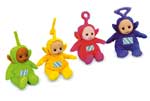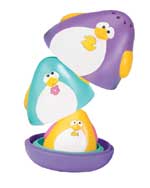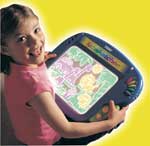|
|||
| Introduction | |||
| Childhood games and toys | |||
| GAMES AND TOYS IN THE EDUCATIONAL PROGRAM
If the goal of early childhood educators is not to transmit different contents to children so that they can learn thanks to that information, but to facilitate activities and experiences that are connected as much as possible to the needs, interests and motivations of children, helping them to learn and develop themselves. The educator has to ensure that the activities are one of the main sources of learning and development. These activities have to be creative ones, because is through action and experimentation that children express their interests and motivations, and, on the other hand, discover features of objects, relations, etc. All of us know that the essential activity of a child is play. Children, by playing, become aware of the real world, involving themselves in the action and elaborate their reasoning and judgements.
Very seldom, except for games, are the conditions required by real didactic activity fulfilled. Play has been defined as an "attractive and substitutive process of adaptation and dominion". That is why it is very valuable as a learning tool, since learning is understood as the fact of facing and dominating different situations. The game is also substitutive because during the first and second childhood it is an introduction to adult situations (for example playing with dolls, role-plays, etc). Rejecting play is depriving education of one of its most efficient instruments, according to Manjun, Föebel, Montessori and Decroly. These people have created some of the most important play materials for these ages. That does not mean, of course, that other age groups have to be excluded from play; what happens is that the game changes according to the general maturity of a child and the evolution of his interests. Play is a global activity; that is why teachers should not try to separate games and work at the nursery schools, because it is not true that games are fun and informal things while work is a serious activity; at least not at these ages. There is nothing more serious for a child than play. Thanks to it, children develop their abilities. According to Götler "the more numerous the energies a child uses when playing, the more valuable a game is; and, on the other side, the less space it concedes to inventiveness and dexterity, the less worthwhile it is". Play is a creative resource in both senses: the physical one (sensory, motor, muscular and psychomotor coordination development) and the mental one, because the child uses all his inventiveness, originality, intellectual capacity and imagination. Besides, games have a high social value because they contribute to shape cooperation and help habits in children and make them face problematic and real situations and, as a consequence, they lead children to a more realistic view of the world. Finally, games are a mean of affective-evolving expression, so they are a very useful projective technique for teachers and psychologists when they want to learn about the problems affecting children.
Since the main activity of a child is play, we will use it as a basic methodological resource, as the base for motivation and learning and as a way to foster significant learnings. Play provides the appropriate context to fulfill the basic educational necessities of infant learning. It has to be taken into account as a mediating tool because of several conditions that ease learning:
Playful activities allow the rehearsal of situations in which mistakes are not considered frustrating. |
||||||||||||||


